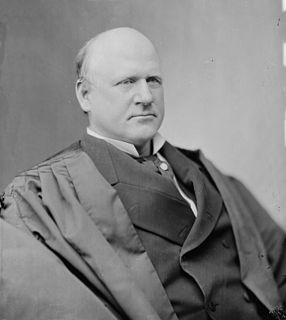A Quote by William Blake
He who makes his law a curse, by his own law shall surely die.
Related Quotes
There is one all-important law of human conduct. If we obey that law, we shall almost never get into trouble. In fact, that law, if obeyed, will bring us countless friends and constant happiness. But the very instant we break the law, we shall get into endless trouble. The law is this: Always make the other person feel important.
You may be surprised to learn that, in our law, although the fetus is currently without the right to life, it does have some rights. For instance, under civil law, the unborn child has the right to inherit part of his father's estate should his father die before he is born, and he has the right to sue his Mother, or a doctor, for injuiries sustained while in the womb.
The whole life of Christians ought to be an exercise of piety, since they are called to sanctification. It is the office of the law to remind them of their duty and thereby to excite them to the pursuit of holiness and integrity. But when their consciences are solicitous how God may be propitiated, what answer they shall make, and on what they shall rest their confidence, if called to his tribunal, there must then be no consideration of the requisitions of the law, but Christ alone must be proposed for righteousness, who exceeds all the perfection of the law.
Your thought describes laws, courts, judges, punishments. Mine explains that when man makes a law, he either violates it or obeys it. If there is a basic law, we are all one before it. He who disdains the mean is himself mean. He who vaunts his scorn of the sinful vaunts his disdain of all humanity.




































